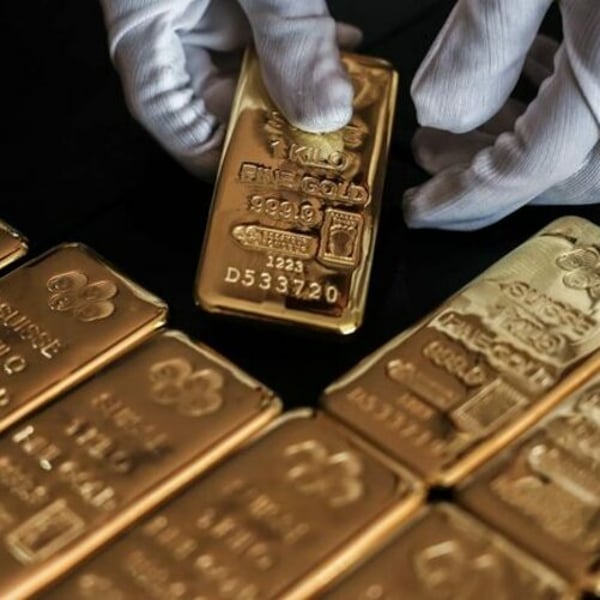Thais are preparing to increase their gold purchases for a fifth consecutive year, buoyed by a rise in the local currency that has made the precious metal more affordable. This development is complicating the efforts of the Bank of Thailand to mitigate gold’s sway over the value of the baht.
According to Nuttapong Hirunyasiri, managing director of MTS Gold Group—one of Thailand’s largest bullion dealers—the allure of gold is growing as its prices reach new heights. Many Thais are turning to the metal not only for its potential returns but also as a refuge amid escalating political uncertainties, both domestically and globally. The Thai Futures Exchange forecasts a 10% rise in gold demand this year, anticipating total purchases to reach 53.7 tons. The World Gold Council reports that in the first half of the year alone, demand surged by 21% to 20.7 tons.
“Thai people love to buy gold,” Nuttapong stated, noting that even amid rising prices, the buying activity remains robust. He observed a dynamic market with both purchasing and selling trends prevalent. This inclination toward gold in Thailand is deeply rooted in cultural and historical practices, with the metal often presented at Buddhist temples and regarded as a traditional means of saving and wealth transfer. The previous year alone saw demand increase by 13%, marking Thailand as a unique example of sustained gold market growth, even during the Covid pandemic, as cited by YLG Bullion International Co.
The baht has appreciated by 7% this year, reaching its highest value since 2021, which has encouraged locals to buy more gold, according to Jitti Tangsithpakdi, president of Thailand’s Gold Traders Association. The Bank of Thailand explained that the baht’s surge can be partly attributed to a gold rally and has committed to curbing any extreme fluctuations.
The relationship between the baht and gold is tightly interwoven; typically, the baht amplifies when Thais sell gold, as the resulting dollar income is often converted into local currency. This bond is more pronounced in Thailand compared to other emerging Asian economies. However, officials at the central bank are working alongside the Finance Ministry to manage currency fluctuations that stray from fundamental economic indicators.
Yet market experts, including Jitti, have questioned the extent of this relationship, suggesting that the baht’s rise is more influenced by the dollar’s weakness and optimism regarding the new government. Tipa Nawawattanasub, CEO of YLG Bullion Futures Co., mentioned that the current trend towards “de-dollarization” is also driving interest in gold. While profit-taking on gold may contribute to the strength of the baht, she argued it is not a predominant factor.
Efforts to reduce the Thai obsession with gold face significant challenges, particularly in light of prevailing weaknesses in other financial markets, where stock performance is lackluster and government bond yields have dropped to multi-year lows. With a continued positive outlook for gold prices, Nuttapong predicts that the trend of Thais investing in gold will persist.
“The sky is the limit for gold prices,” he remarked, attributing the ongoing demand to geopolitical tensions and the policies of U.S. President Donald Trump, both of which he believes contribute to increased uncertainty and foster demand for gold as a stable investment.







